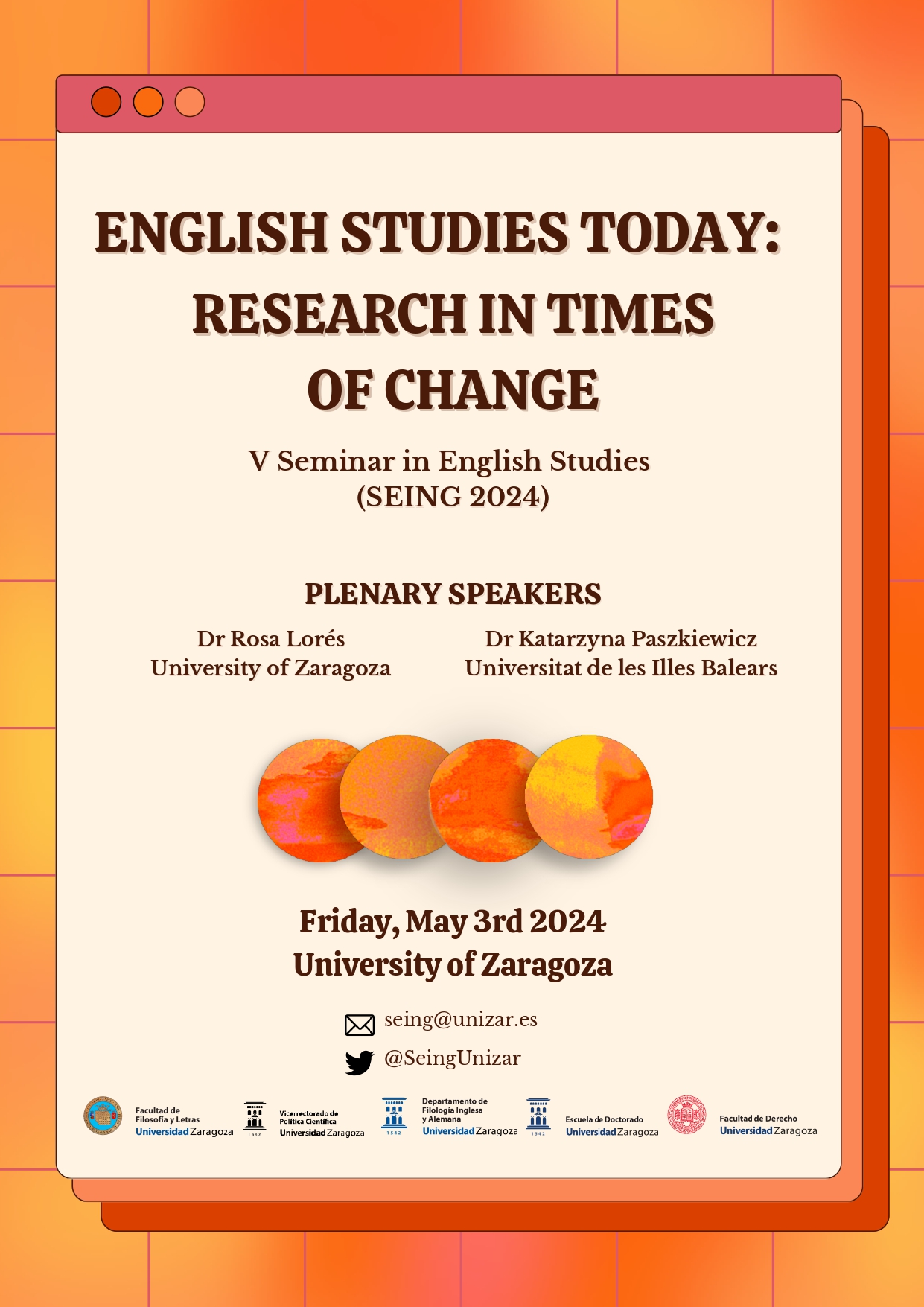Our participation in the SEING V seminar

The 5th edition of the doctoral seminar in English Studies (SEING V) took place last May the 3rd 2024, under the title “English Studies Today: Research in Times of Change”. This seminar is organised once every two years by the Department of English and German Philology of the University of Zaragoza, and it is aimed at doctoral students in English Studies. In this edition, several of our team members participated by carrying out different roles. Our team members Paula Wood-Borque and Ana E. Sancho-Ortiz were part of the organising team.
Dr. Rosa Lorés was invited to deliver one of the two plenary talks in this event, which was chaired by Dr. Ramón Plo-Alastrué. In her talk, titled “Looking into digital knowledge transfer: The what and the how”, she delved into the newly emerging dynamics of knowledge transfer and their connection with the outburst of digitally-mediated practices. After foregrounding the differences and similarities between dissemination and popularisation practices, Dr. Lorés presented the main focus of our current research project, SciDis (Science Dissemination), centred on knowledge recontextualization practices. As part of this, she gave an overview of the theoretical frameworks and methodological perspectives for the analysis of digital discourse, and then focused on the pragmatic strategies used in the recontextualization of expert knowledge in research digests drawn from the SciDis database.
Each of the PhD candidates in our group, Paula Wood-Borque, Ana E. Sancho-Ortiz and Luis Martinez-Kleiser, presented a paper about their current research, while our members Dr. Pilar Mur Dueñas and Dr. Silvia Murillo Ornat participated as chairs in two of the panels:
Paula’s paper was titled “Using audiovisual materials with EFL lower-level students: Compilation and multimodal analysis of a corpus of films and series”. Chaired by Dr. Pilar Mur-Dueñas, Paula presented the analysis results of a sample of scenes for the 1st year of Secondary Education and explored how such results informed the development of exploitation suggestions that contribute to the development of students’ multimodal communicative competence.
Luis’ paper was titled “Disseminating science to adolescents: Exploring linguistic, discursive and multimodal patterns and classroom applications in EFL”. He presented his corpus of scientific texts for adolescents and he examined the mechanisms by which this scientific, specialised knowledge is recontextualised to be consumed by a younger, non-expert audience. His research also delved into the discursive and multimodal features employed to bridge technical knowledge with teenage audiences and evaluate their impact on comprehension among such readers.
In Ana’s presentation, titled “Methodological challenges in compiling a database of scientific dissemination practices on social media: The SoMePhy database”, she addressed the methodological challenges she had to face during the compilation of her (now renamed) SMEPH Database. She then argued how said challenges can be overcome by compiling a closed database from which smaller data samples might be selected as the object for focalised case studies on specific dialogic phenomena.
Finally, Dr. Vicky Gil was invited to participate as a member of the postgraduate roundtable, in which the discussions revolved around experiences and challenges faced by researchers who recently obtained their PhD title.
